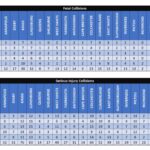HRM release:
The Halifax Regional Municipality has released the results of the 2024 Resident Survey. Key highlights are outlined below and a summary of the results can be found at: halifax.ca/residentsurvey.
Residents were asked to share their opinions on municipal priorities, their satisfaction with municipal services and their thoughts on potential and proposed changes and improvements – as well as other key issues impacting communities across the region. This was the 11th resident survey since municipal amalgamation in 1996.
The Resident Survey is one of many inputs to the municipality’s planning processes, with the results of the survey being used to measure performance and guide strategic policy and planning decisions as the municipality develops the 2026-2030 Strategic Plan.
Key highlights of the 2024 Resident Survey results:
- Top issues: The availability of housing was identified as the primary issue facing the municipality over the next five years by a significant margin. Other key issues cited include affordable housing and rent control; transportation and traffic; transit; poverty and homelessness; and healthcare.
- Quality of life: 80 per cent of residents rated their quality of life as very good or good, down nine percentage points from 2021. The decrease was attributed mainly to concerns about housing affordability and availability as well as the increased cost of living.
- Perception of value for taxes: 43 per cent of residents indicated they received very good or good value for the property taxes they paid, a decline from 72 per cent in 2021.
- Satisfaction with municipal services: Overall, 60 per cent of residents were very satisfied or satisfied with the delivery of all services provided by the municipality. This is down from 82 per cent in 2021.
- Service levels: When asked if they would like to increase, maintain or decrease service levels for municipal services, a majority of residents said they would prefer to maintain service levels for 34 of the 40 municipal services surveyed. Services identified as areas desirable for increased service levels include support to address homelessness and support those who are unhoused; efforts to support food security and strengthen the food system; public transit (including conventional bus and overall transit service); street and road maintenance; and climate action.
- Priorities: When asked to rate the importance of 22 aspects of the Regional Council Priorities in the 2021-2025 Strategic Priorities Plan, residents rated all but one as very important or important, with ‘ensuring the transportation network allows easy movement around the region’ rated the highest (with 96 per cent of respondents saying it was very important or important).
- Infrastructure: Housing (at 44 per cent) was rated the most important infrastructure project for the municipality to invest in over the next five years. Streets and roads, climate change mitigation and protection and food security were also rated highly.
- Municipal direction and public engagement: 35 per cent of residents feel the municipality is moving in the right direction to ensure a high quality of life for future generations. Over two-thirds felt the municipality did a good job communicating regional and local issues.
- Service quality: 75 per cent of residents indicated they had some form of contact with the municipality over the past year and 84 per cent of those individuals were satisfied with their interaction. Ratings for those using online services were also high, with 83 per cent satisfied with the outcome of their interaction.
- Housing and homelessness: 85 per cent believe the municipality should allocate additional resources to address the creation of more housing in general and 78 per cent believe that the municipality should allocate additional resources to address homelessness.
- Food security: 51 per cent of residents indicated that the greatest barrier to getting the food they need to be healthy and active was that food was not affordable.
- Environment: The top priority for action on environment and climate change was food security – followed by extreme weather and emergency management.
- Policing: Overall, 57 per cent of residents said the police are doing an excellent or good job, with 13 per cent saying they were doing a poor or very poor job.
- Public safety: 94 per cent of residents feel safe in their neighbourhood during the day, and 70 per cent at night. 37 per cent felt safe at night in downtown Halifax and 30 per cent at night in downtown Dartmouth.
- Parks: 73 per cent of residents were satisfied with the various municipal park assets and services – apart from the condition and availability of public washrooms.
- Libraries: 61 per cent of residents reported using the Halifax Public Libraries over the past year, and 98 per cent of users were satisfied with the library system.
- Mobility and transportation: 61 per cent of residents reported they commuted to work, with 65 per cent using their own personal vehicle as their primary mode of transportation. 19 per cent reported using public transit, and eight per cent walked or used a mobility device. Satisfaction with the ease of getting around by various modes varied from 79 per cent for walking, to 35 per cent for public transit. More reliable service, more frequent service, more direct routes and shorter travel times were cited as things that would encourage more people to use public transit. The overall condition of roads in the municipality was rated as good by 29 per cent of residents. Sidewalks scored higher at 52 per cent.
The 2024 Resident Survey, conducted by Narrative Research from Sept. 20 to Oct. 13, 2024, included responses from 2,029 residents though online, telephone and paper formats. Results have been statistically weighted by age, gender and the district of residence of respondents. The overall margin of error for this survey is ±2.2 percentage points (19 times out of 20 or at the 95 per cent confidence level).



